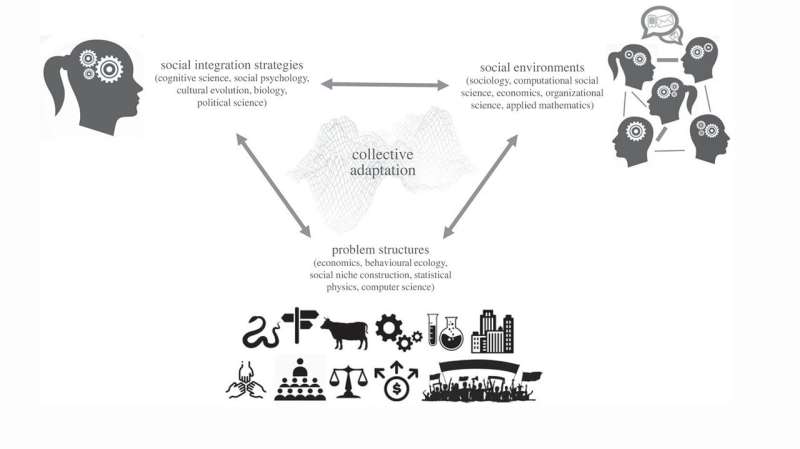 |
| Source Santa Fe Institute |
We often thought about those things in separated categories of science, with limited information, and often not great records. Now the information is more at our fingertips and there is digital footprints everywhere if one were to sort of hunt them down and have legal access to the information (Notice I said legal. That is why hacking is in generally immoral as it circumvents certain rights and laws. Its an exploitation of private information for typically financial or conflictual gain. The same can be said for the misuse of surveillance equipment. i.e. cameras pointed in a window, etc. From a root moral question it is just generally wrong to eavesdrop, lie or steal so this would fall into that ethical category. Thus, certain actions should be illegal so as to protect against data exploitation. We might know that but then it gets really complex because of political and rhetorical legal questions.)
Ok sorry I digress.....
Societal adaptation could be anything such as the Pandemic, social values, extremism, higher utility costs, global warming, patriotism, first responder recruitment issues, etc. Typically I think it would need to be a large enough and generalized problem to be worthy of a study. Once you know the research problem, you can create the question and then find the metrics to gain the best answer you can.
Notice in the study how they look at problem structures, social integration strategies, social environment. It appears they are using different lenses to try and view the problem holistically. Its not going to be perfect because you have to cut the data somewhere. We are just moving into the big data systems now so eventually someone will build a framework for 100's of categories of data input to understand a problem (The algorithms will always need to be triple checked because that is where the data finds its meaning. Algorithms strive for perfect accuracy...but they never are. They are fictitious to represent real life events/phenomenon in numbers/numeral form. No one could build a formula so complex as to capture all possibilities. Thus, we use models of the most likely scenarios within our current awareness. The algorithm would be the mathematical model of what this data may mean as a representation of the main measurements that represent an actual phenomenon.)
P.S. I added companies because large companies would have their own adaptation behaviors. That would be complex for global companies working with different rules and laws in different places.
No comments:
Post a Comment